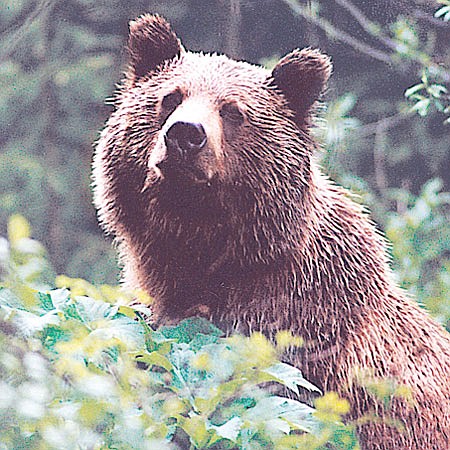Grizzly bears continue to spread across Montana
A grizzly bear has been roaming the Pryor Mountains, state wildlife officials confirmed this week.
Many people have reported seeing grizzly bears in the mountains in southeast Montana in recent years, but the recently identified grizzly is the first confirmed sighting, according to Montana Fish, Wildlife and Parks...
Become a Subscriber!
You have read all of your free articles this month. Select a plan below to start your subscription today.
Already a subscriber? Login



